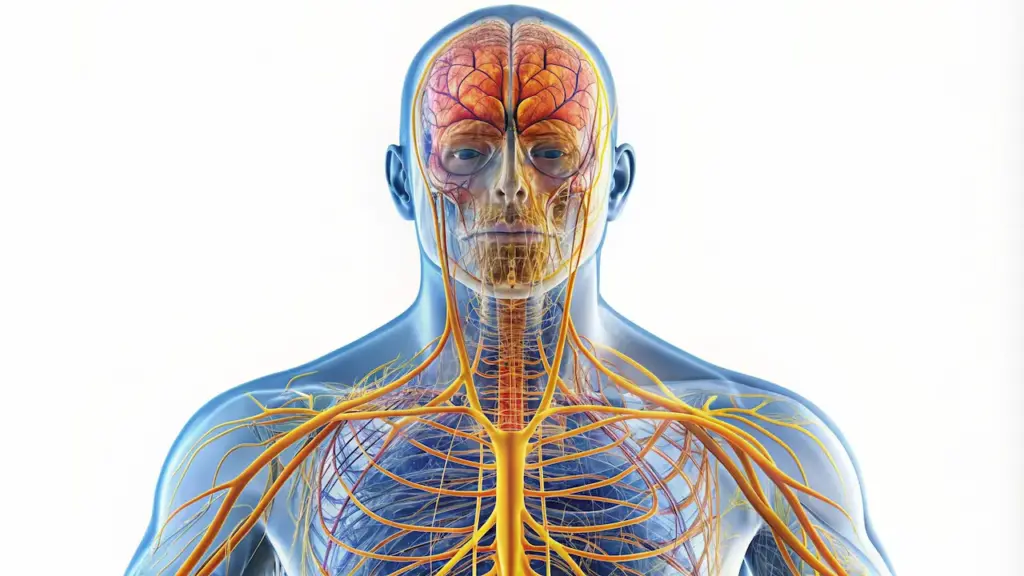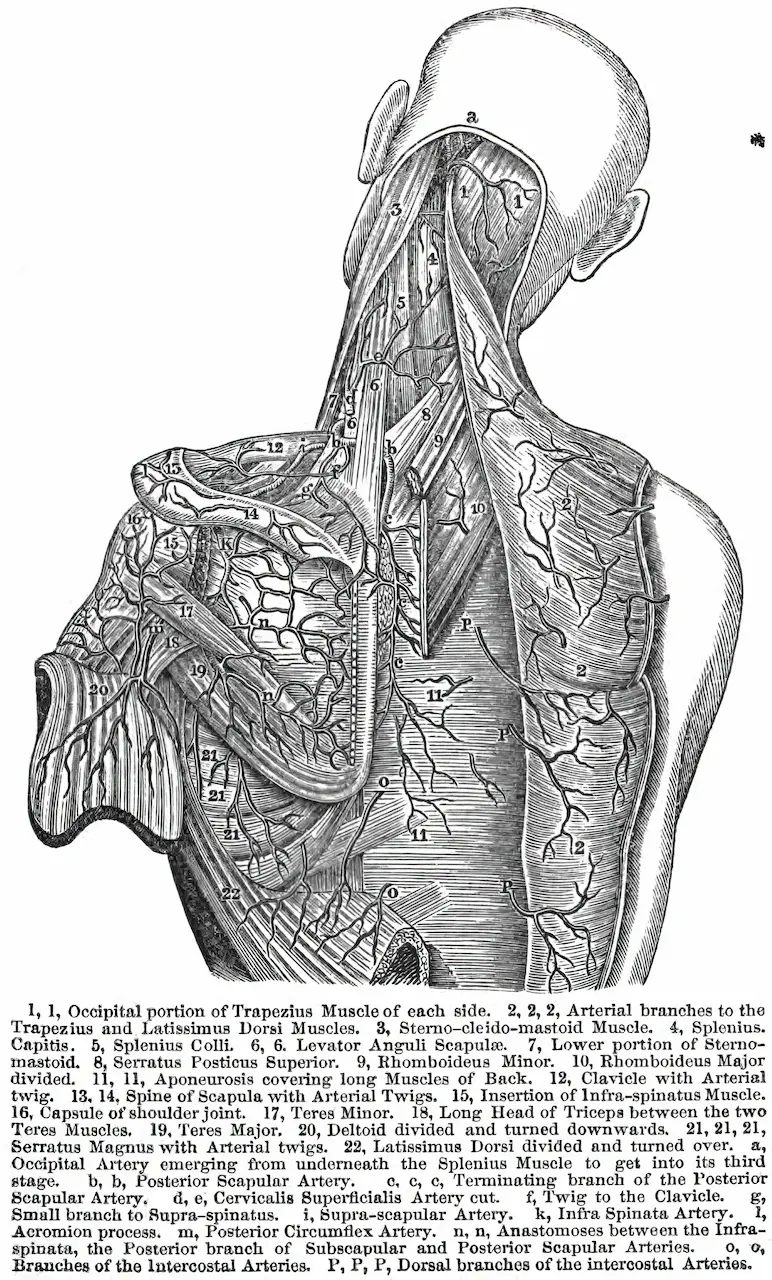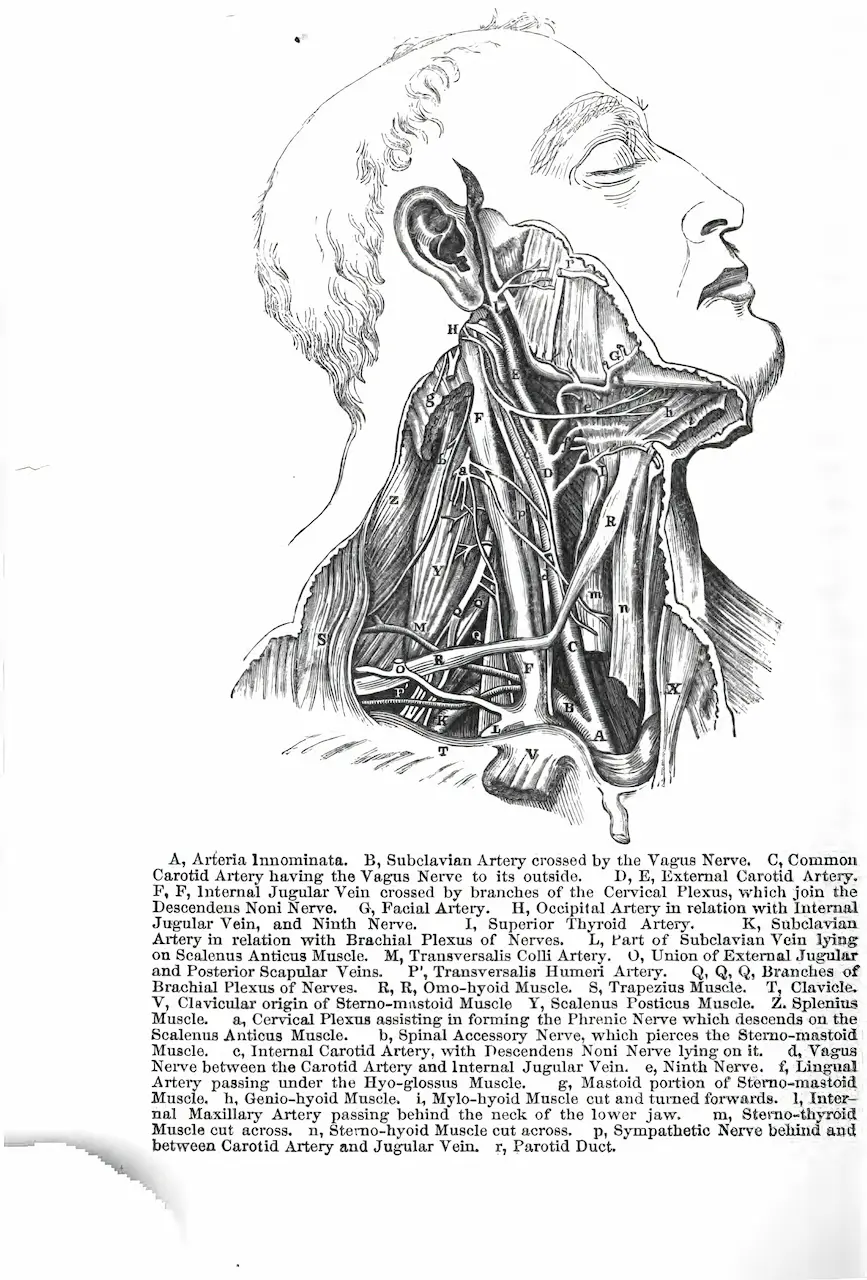What Is The Vagus Nerve
So What Is The Vagus Nerve?
Vagal nerves transmit signals from your brain to your heart and digestive system. The vagal nerves are a vital part of the parasympathetic system. Damage to the vagus nerve can cause gastroparesis – food that doesn’t move into your intestines. Some people who have vasovagal synchronia faint due to low blood pressure. Vagus nerve stimulator (VNS) is used to treat epilepsy, depression and anxiety.
Vagus nerves play a major role in your parasympathetic nervous system and keeping your vagus nerve healthy ensures good gut health.
What is the Vagus Nerve Introduction
The main nerves in your parasympathetic system are known as vagal nerves or the vagus nerve. These fibers transmit information between your brain, heart, and digestive system. The vagal nerves are vital for regulating specific body functions such as digestion, heart rate, and the immune system. These functions are not voluntary, meaning you cannot control them.

Want To Learn More? Read: Gut Brain Axis Nutrition
Function
The vagus nerve system is involved in many involuntary motor and sensory functions, including digestion, heart rate, blood pressure, breathing, immune system responses, mood, production of mucus and saliva, skin and muscle sensations, speech, taste, and urine output.
What is the purpose of the vagus?
The nerve system is made up of the vagal nerves. They are involved in many involuntary motor and sensory functions.
- Digestion.
- heart rate blood-pressure and breathing (breathing).
- Immune system responses.
- Mood.
- Production of mucus and saliva.
- Skin and muscle sensations
- Speech.
- Taste.
- Urine output
What is the function of the parasympathetic system?
The parasympathetic system is responsible for “rest and digestion” functions. This is the opposite to your sympathetic nervous systems “fight or flee” response.
The autonomic nervous is made up of these two systems. This system is responsible for controlling involuntary bodily functions.

Anatomy
Where is the vagus Nerve?
The vagus nerves run from your brain all the way to your large intestine. The left vagus travels along the left side, while the right vagus travels along the right side. These nerves wind their way through your body, exiting the medulla oblongata in the lower brainstem and connecting to various organs.
The Latin word “Vagus”, which means wandering, is used to describe this phenomenon. The vagal nerves wind their way through your body. The vagal nerves exit your medulla ovalis in the lower brainstem. The nerves then pass through or connect to:
- Neck (between the carotid arterial and the jugular venous).
- Chest (thorax)
- Heart.
- Lungs.
- Abdomen, digestive tract and intestines
What are vagal nerves?
The vagal trunk is formed by the left and right vagal nervous system. The vagal trunk is formed by the esophageal sphincter, which is where your esophagus enters your abdominal cavity. The vagal tract includes the anterior (front) as well as posterior (back) stomach nerves. These nerves travel to your abdomen.
The vagal nerves are:
- The inferior ganglion branch, which serves the nerves and muscles of your voice box and throat (pharynx).
- Superior branch of the ganglion, which serves nerves in your spine and ear.
- The Vagus nerve branch is responsible for nerves in your heart, lungs, and esophagus.
Conditions and Disorders
What disorders and conditions affect the vagal nervous system?
Damage to the vagus nerve can cause conditions like gastroparesis, where food doesn’t move into the intestines, and vasovagal syncope, which can cause fainting due to low blood pressure. The vagus nerve stimulator (VNS) is used to treat epilepsy, depression, and anxiety by sending electrical impulses to the brain to calm abnormal electrical activity.
These conditions can affect your vagus nerve:
- Gastroparesis is caused by damage to the vagus nerve. This vagal nerve injury can be caused by diabetes or viral infections. It may also result from abdominal surgery, scleroderma.
- Vasovagal Syncope: syncope can also be called fainting. Vasovagal Syncope is caused by a vagus nervous system overreacting to situations such as extreme heat, Anxiety or Stress. The blood pressure can drop very quickly ( Orthostatic Hypotension) and make you feel faint.

What are the symptoms of vagus nerve disorders?
The symptoms of vagus nerve disorders vary depending on their cause and the part of the nerve affected.
You may experience:
- Bloating and abdominal pain.
- Acid Reflux (gastroesophageal re-flux disease, GERD).
- Changes in heart rate, blood glucose or blood pressure.
- Loss of gag reflex or difficulty swallowing.
- Feeling dizzy or fainting?
- wheezing, or loss of vocal cords.
- Loss of appetite or feeling full quickly .
- Nausea and vomiting.
What is vagus Nerve Stimulation?
Vagus Nerve Stimulation (VNS), uses electrical impulses, to stimulate the left vagus. A small device is implanted under the skin of your chest by healthcare providers. A wire connects the device to your nerve under your skin.
This device transmits painless, mild electrical signals to your brain via your left vagus. These impulses reduce the irregular electrical activity within your brain.
The FDA has approved VNS for the treatment of epilepsy and Depression which do not respond to standard treatments. The treatment is also being studied for:
- Cluster headaches.
- Inflammatory Bowel Disease (IBD)
- Pain.
- Posttraumatic Stress Disorder (PTSD).
- Rheumatoid Arthritis.
What are the symptoms of vagus nerve disorders?
You may be ordered to undergo one of these tests by your healthcare provider in order to diagnose a vagal nerve problem.
- MRI or CT scan can be used to check for intestinal obstructions.
- Echocardiogram for assessing heart function.
- Solid study on gastric emptying, or smart pill to measure how long it takes for food to pass through your stomach into your intestines.
- Upper endoscopy to examine your upper digestive system.
What are the common treatments for vagus disorders?
Treatments include:
- Changes in diet.
- Medicines that relieve nausea and abdominal discomfort, regulate blood glucose and improve stomach emptying.
- You can use feeding tubes to get nutrition into your bloodstream.
- The opening of the stomach is called a gastrostomy.
- Gastric electrical stimulation is similar to VNS. It sends electrical impulses to the muscles and nerves of your stomach to move food through your intestines.
Treatments for vasovagal Syncope include
- Consuming a high-salt diet.
- Diuretics and other medicines that lower blood tension should be stopped.
- Take medications to increase sodium levels, fluids and blood pressure. Or to calm nervous system responses.
- Wear compression stockings in order to prevent blood from pooling on your legs.
You can also read about how to care for yourself.
To maintain a healthy vagus nerve, adopt the following lifestyle changes: exercise regularly, eat a healthy diet, manage conditions such as diabetes or high blood pressure, and practice stress-reducing techniques like meditation or hypnotherapy. If you experience symptoms like abdominal pain, acid reflux, difficulty swallowing, fainting, nausea, unexplained weight loss, or an abnormal heart rate, consult a physician. By taking these steps, you can help protect the health of your vagus nerve and ensure it functions properly.
How can I protect the vagal nerves in my body?
These lifestyle changes can keep your nervous system healthy:
- Exercise regularly.
- Eat a healthy diet.
- Manage conditions such as diabetes or high blood pressure.
- Use techniques like meditation or hypnotherapy.
When should I consult a physician?
If you have:
- Pain in the abdomen
- Acid reflux.
- A difficulty swallowing or talking.
- Fainting.
- Nausea or vomiting, or weight loss that is not explained.
- Heart rate can be rapid or slow.
A Side Note
Vagal nerves are important in regulating involuntary body functions such as heart rate, digestion and breathing. Damage to the vagal nerves may cause digestive issues like gastroparesis. VNS is used by healthcare providers to send electrical impulses to your brain. These impulses are used to calm down abnormal electrical activity in the brain.